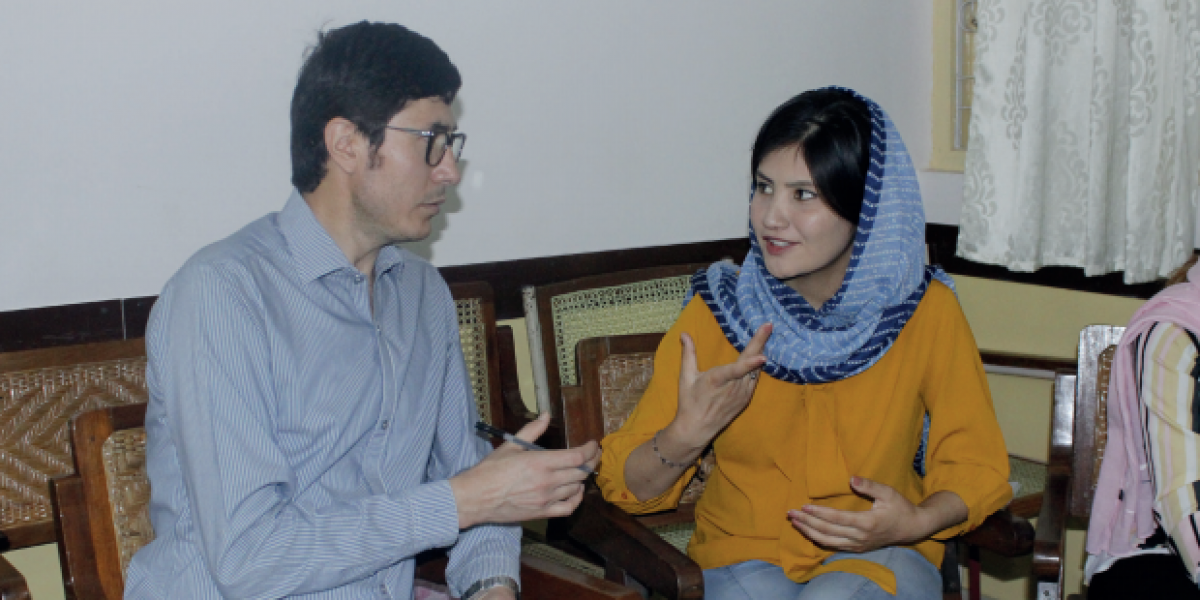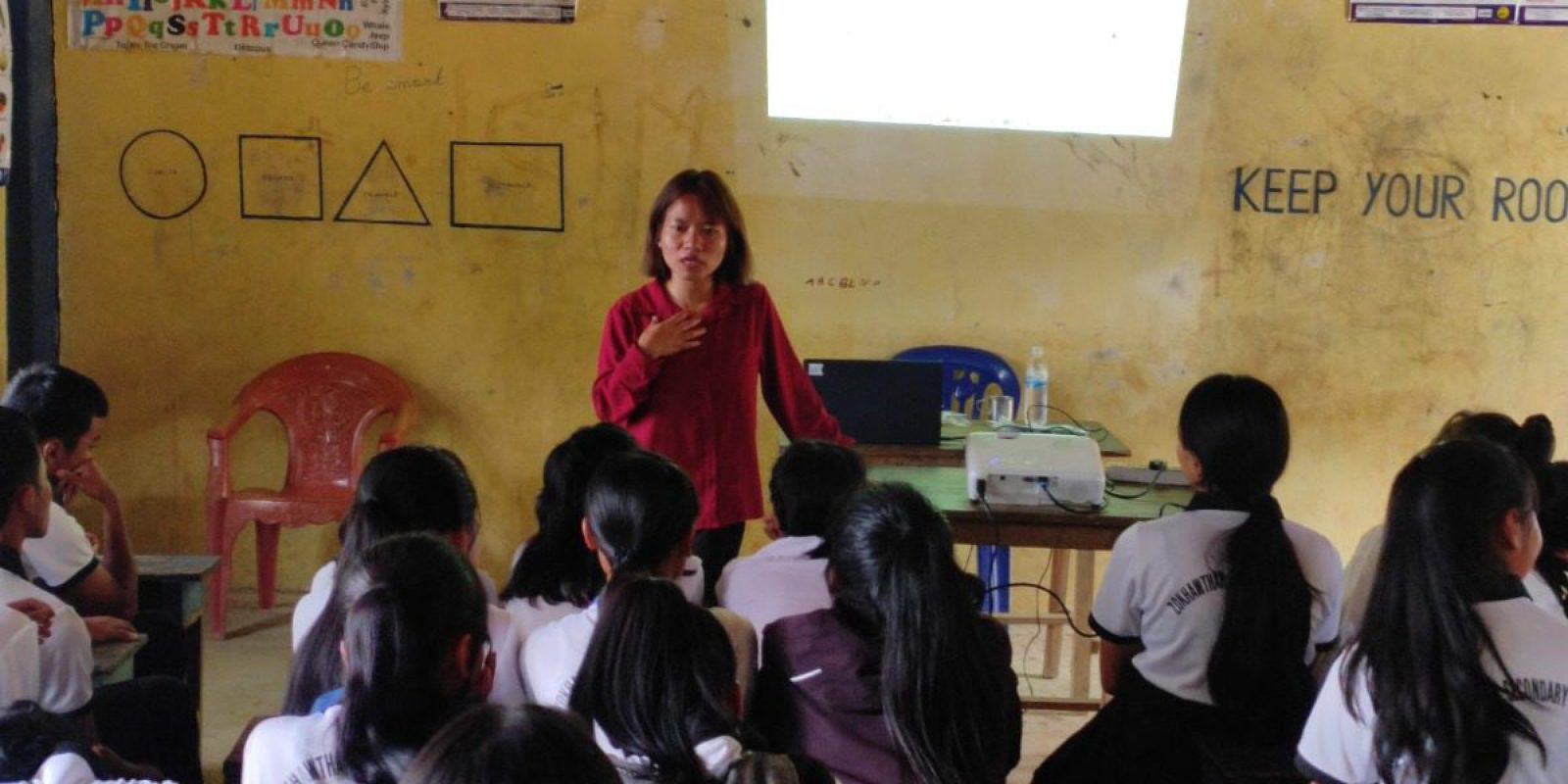
Children see the world as a place of freedom to learn, grow, and be anything you put your mind to. Holding on to this childlike spirit is difficult for children when they’re exposed to war, persecution, or forced displacement from their homes. Many refugee children from Afghanistan and Sri Lanka suffer long-lasting psychological effects from the violence and displacement they endured to reach safety. For some children, exposure to distressing events have a profound and lasting effect on their daily functioning. Some lose the desire to play with others, have trouble focusing in school, or develop changes in their behavior.
JRS recognizes this need for mental health and psychosocial support and organized a five-day workshop on ‘Counselling & Art for Peace & Reconciliation’ in December 2019 in Bangalore, India. The counseling, theater, and art therapy sessions were facilitated by Clifford De Silva, Director of Goa Institute, Fr. Roy Thottam S.J. from Loyola Institute of Peace and International Relations, and Ms. Biju. The team provided safe spaces and activities for the young adults to openly express their feelings and discuss hardships, while addressing the need for companionship among peers.
The workshop brought together 32 Afghan and Sri Lankan Tamil refugee youth. Afghan participants engaged in trainings focused on para-counseling therapies such as, approaches for Person/Client Centered Therapy, Emotional Freedom Technique, Eye Movement Integration, and Therapeutic art. Theater techniques’ training were taught to Sri Lankan Tamil youths through nature walks and self-reflection exercises. Group activities like storytelling, energizers, face-painting, and mirror acting brought both youth groups together for mutual learning. Lessons taught through role-playing became a great confidence booster and therapeutic for the teens. “Equipping community members with skills of peer-counseling is a well-documented strategy to reduce the effects of conflict and build resilience. Para-counselors are empowered and supported to overcome their own experiences and have the empathy and experience to help others with similar experiences,” stated Katie Mullins, JRS/USA Mental Health and Psychosocial Support Specialist.
They were able to practice empathy, active listening, and intercultural tolerance as they acted out their character situations. At the end of the workshop, the participants all stated how they felt better prepared to address fear, stress, and anxiety and find suitable solutions to social issues to nurture an inclusive and harmonious society. “The workshop has taught me not only to value, but also to foster healthy human relationships, irrespective of cultural or ethnic differences.” Sivakumar, Sri Lankan Tamil participant.
Psychosocial programs provided by JRS aim to strengthen community and family supports through emphasis placed on building hope, restoring human dignity, and strengthening social cohesion. A cornerstone of the JRS mission is to offer holistic human services through companionship, warmth, and recognition of human dignity. Through this mission and JRS’s lens of accompaniment, we provide psychosocial support to those in need. Learn more about our pastoral care and psychosocial support https://www.jrsusa.org/program/pastoral-care-and-psychosocial-support/



